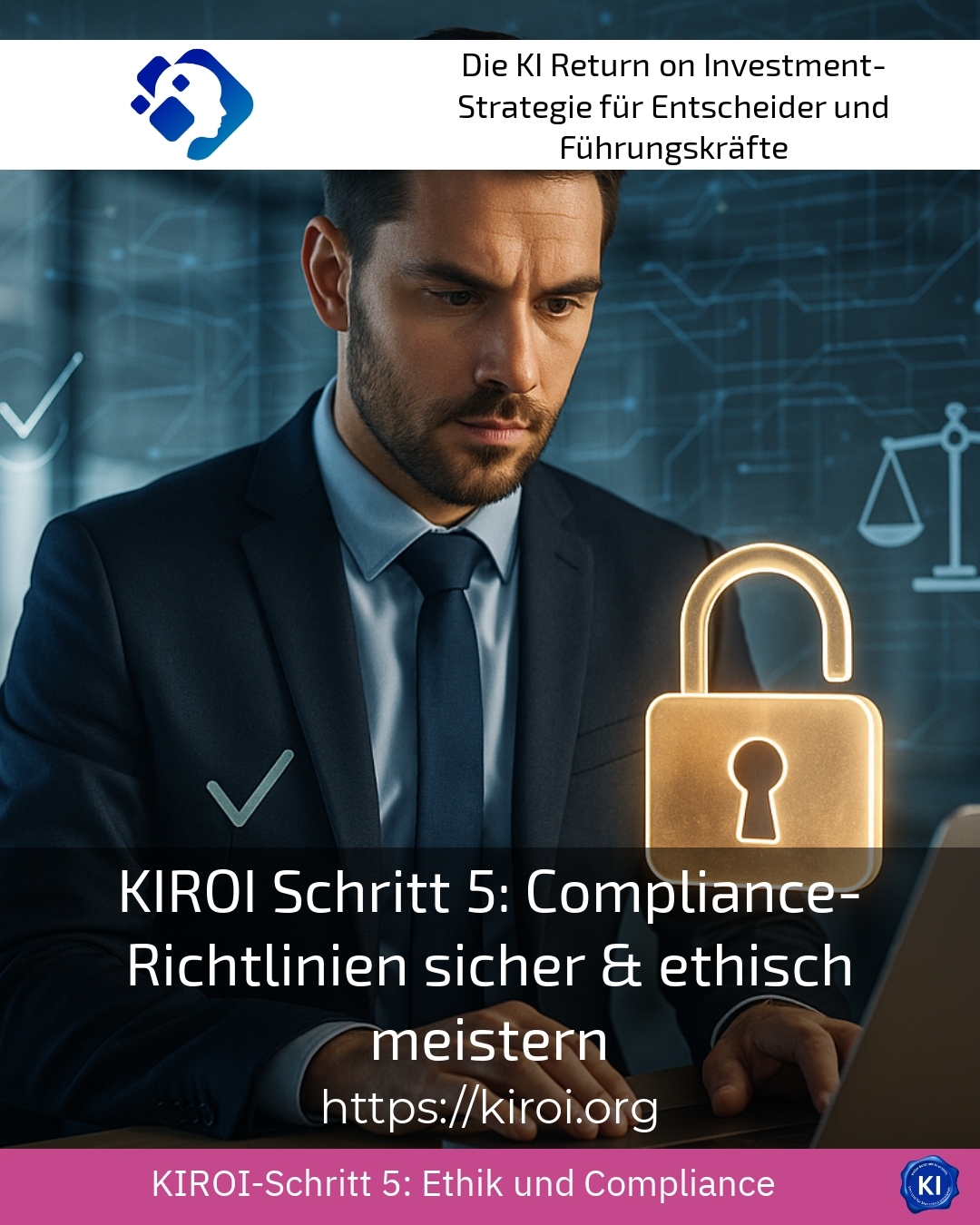Compliance guidelines are essential for guiding a company safely and ethically through complex legal requirements. Step 5 at KIROI focusses on how these guidelines can be reliably adhered to on a day-to-day basis. In this way, companies ensure that they not only fulfil legal requirements, but also promote a culture of integrity and responsibility.
Compliance guidelines as the cornerstone of corporate integrity
Compliance guidelines form the framework for ensuring that employees and managers observe legal and internal requirements in equal measure. For example, clear rules on data protection can be implemented to ensure that sensitive customer data remains protected at all times. Equally important are occupational safety regulations that prevent accidents and promote the health and safety of employees. A third example is anti-corruption guidelines, which ensure that gifts or benefits to business partners do not lead to unfair advantages.
Companies in the construction industry integrate compliance guidelines to ensure transparent procedures in tenders and contract awards. In the financial sector, these guidelines help to prevent money laundering and comply with international regulations. In the healthcare sector, compliance guidelines also help to protect patient data and adhere to ethical standards in treatment.
Practical implementation: training and communication channels
Effective compliance guidelines thrive on regular training that informs employees about current regulations and behavioural requirements. In this way, cases of data misuse or conflicts of interest are recognised and avoided more frequently. In addition, transparent communication via internal platforms or newsletters is recommended in order to keep compliance-relevant topics permanently present.
One manufacturing company, for example, introduced quarterly training courses to reinforce health and safety regulations. A service provider in the IT sector used its internal platform to provide practical examples of compliance with the General Data Protection Regulation (GDPR). In the retail sector, checkout staff used role plays to raise awareness of how to deal with suspicious situations and possible cases of fraud.
BEST PRACTICE with one customer (name hidden due to NDA contract) Here, transruptions-Coaching supported the company in the implementation of compliance guidelines in sales. The employees were given targeted impulses to handle customer data ethically and correctly while at the same time complying with the company's internal guidelines. This led to a demonstrable reduction in offences and a lasting improvement in customer satisfaction.
Mastering compliance guidelines safely & ethically in everyday life
Compliance guidelines should not just be understood as a rigid set of rules, but as living principles that promote ethical behaviour. In practical terms, this means that managers are role models and deal with behavioural violations consistently but fairly. In addition, anonymous reporting channels can be set up so that employees can report possible misconduct without fear of reprisals.
In the pharmaceutical industry, for example, ethical standards are crucial to ensure trust among patients and partners. The food industry uses compliance guidelines to ensure product safety and transparency in the supply chain. In consulting, conflicting interests are openly disclosed and regulated with clear rules of conduct in order to maintain the trust of clients.
Recommendations for action for a sustainable compliance culture
To master compliance guidelines safely and ethically, it is advisable to implement the following tips:
- Define clear responsibilities: Who is responsible for what? This creates transparency.
- Conduct regular audits to identify and close gaps.
- Actively involve employees - their feedback provides valuable impetus for further development.
- Keep communication open so that everyone is informed of changes.
- Strengthen value orientation in order to see compliance not just as a duty but as an opportunity.
In mechanical engineering, for example, precise documentation of all purchasing processes ensures traceable processes and preventive protection against corruption. In the IT sector, code of conduct training promotes the responsible handling of company and customer data. In non-profit organisations, compliance guidelines help to use funding responsibly and ensure non-profit status.
My analysis
Compliance guidelines are not just a legal must, but an essential component of sustainable corporate governance. They protect against legal risks, strengthen trust and promote a culture of ethics and transparency. The consistent implementation and regular adaptation of these guidelines help companies to master challenges safely and responsibly. Compliance guidelines are part of everyday life in many industries and create a stable framework for long-term success.
Further links from the text above:
Introducing compliance rules and guidelines in the company
Compliance: That's what matters
Explanation of terms: Compliance guidelines
COMPLIANCE DIRECTIVE (Fahrnerbau)
Compliance: definition, tasks, guidelines
The top 5 compliance guidelines for every company
Compliance guidelines - Company (nts Ingenieurgesellschaft)
For more information and if you have any questions, please contact Contact us or read more blog posts on the topic Artificial intelligence here.















